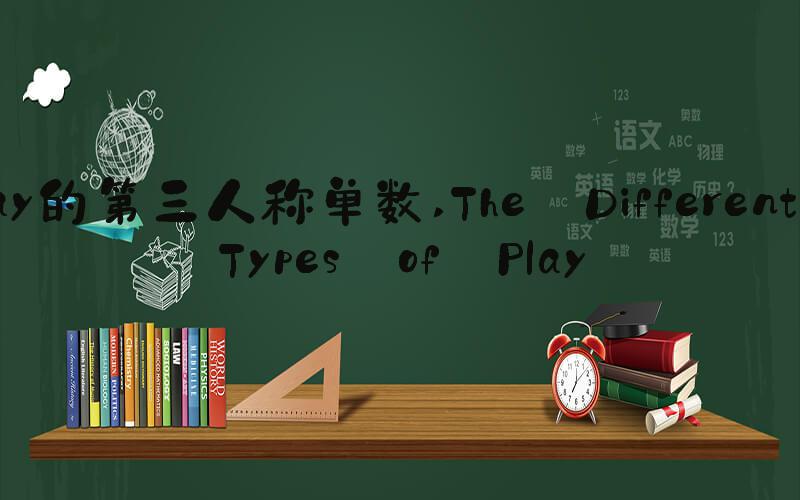 Play
PlayPlay is a natural activity for many animals, including humans. From a young age, we are drawn to activities that involve playing, whether it’s with toys, friends, or imagining new worlds. Play is not just a way to pass the time, but it is also essential in developing our social, emotional, physical, and cognitive skills. In this article, we’ll explore the different types of play, its benefits, and how to incorporate it into your daily life.
The Different Types of PlayThere are many ways to categorize play, but the most common approaches include:
Physical play:This type of play involves activities that move the body, such as running, jumping, hopping, climbing, and dancing. Physical play is essential in improving children's gross motor skills, balance, coordination, and muscle strength.
Pretend play:Pretend play, also known as imaginative play, is when children act out scenarios or play with imaginary props or characters. This type of play allows children to develop their creativity, language, problem-solving, and emotional regulation skills.
Creative play:Creative play involves activities that allow children to express themselves through art, music, or writing. This type of play enables children to develop their sensory, fine motor, cognitive, and emotional skills.
The Benefits of PlayPlay is not just a fun activity but also crucial for children's healthy development. Here are some of the benefits of play for children:
Improving social skills:Play helps children learn how to interact with others, negotiate, take turns, and develop their sharing skills. Through play, children also learn how to communicate and express themselves better.
Enhancing cognitive development:Play stimulates children's cognitive abilities by providing opportunities for problem-solving, logic, reasoning, and critical thinking. It also helps to improve their memory, attention, and creativity.
Promoting emotional regulation:Play allows children to explore their emotions, express themselves, and learn how to manage their feelings. Through play, children also develop empathy and learn how to understand and relate to others.
Fostering physical development:Play is essential for children's physical health and development. It helps to improve their coordination, balance, fine and gross motor skills, and overall fitness.
Incorporating Play into Your Daily LifeAs adults, we tend to forget the importance of play in our lives. However, incorporating play into our daily routines can help us reduce stress, increase creativity, and improve our overall well-being. Here are some ways to incorporate play into your daily life:
Try new activities:Experiment with new activities that challenge your mind and body, such as learning a new sport, instrument, or language. Engaging in new experiences helps to stimulate our brain's reward system, which releases dopamine, a feel-good neurotransmitter.
Get outdoors:Spend time in nature. Nature provides a soothing and calming effect on our minds and bodies. Whether it’s hiking, gardening, or fishing, outdoor activities help us connect with the natural world and reduce stress.
Play with your children:Playing with your children not only strengthens your bond but also allows you to relive the joys of childhood. Join in their imaginative games, build a fort, or simply run around the park together. Playing with your children provides an excellent opportunity for you to engage in physical, imaginative, and creative play.
Take breaks:Take breaks throughout your day to engage in play. Whether it's a quick game of basketball, a puzzle-solving session, or a spontaneous dance party, taking breaks from work or your daily routine helps to recharge your mind and reduce stress.
ConclusionPlay is a vital component of our lives, and it is essential to nurture it for our physical, mental, and emotional well-being. By incorporating play into our daily routines and encouraging our children's play, we can experience the numerous benefits it offers. So, go ahead, be playful, and see how it transforms your life for the better.
